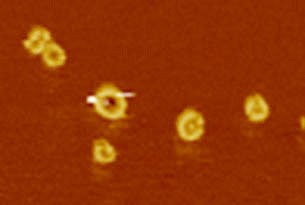TRIANNI & the German Society for Immunology (DGfI) honors outstanding young scientists.
Advertisement
Every year, the German Society for immunology awards two doctoral and three early-career prizes to young scientists who have made an outstanding contribution in the field of immunology. The award ceremony took place during the 5th European Congress of Immunology in Amsterdam. TRIANNI was honored to sponsor one of the awards; The Werner-Müller Award.
Eva Kaufmann receives the prize for describing a new mechanism for protection against tuberculosis with the vaccine Mycobacterium bovis Bacillus Calmette-Guérin (BCG). Tuberculosis is an infectious disease caused by mycobacteria. With approximately 1.7 million deaths per year, the disease is one of the ten most frequent causes of death worldwide. BCG is so far the only tuberculosis vaccine approved worldwide. The vaccine consists of attenuated, non-infectious bovine tuberculosis bacteria that are used as live vaccines. It is known that macrophages play a decisive role in the defence against tuberculosis infections. Unfortunately, macrophages are only very short-lived. Therefore, vaccine strategies directly targeting macrophages would have only a limited effect on the generation of longterm immunological memory. In contrast to macrophages, their precursor cells, the hematopoietic stem cells (HSC) in the bone marrow, are very long-lived. HSC generate all cells of the blood system. Eva Kaufmann's work in the mouse model shows that the access of BCG to the bone marrow leads to a reprogramming of HSCs.
This leads to the formation of macrophages that provide improved protection against tuberculosis. These observations show that HSC represents new targets for vaccine development, and thus open up innovative prophylaxis approaches for tuberculosis and possibly other infectious diseases.






















































